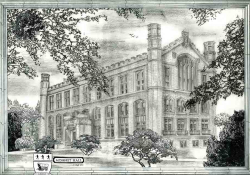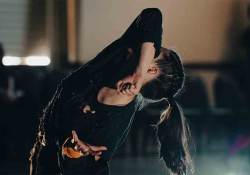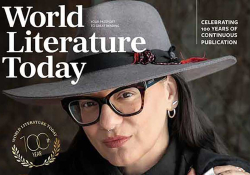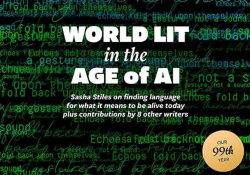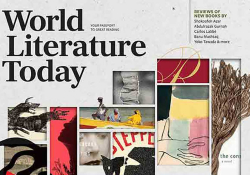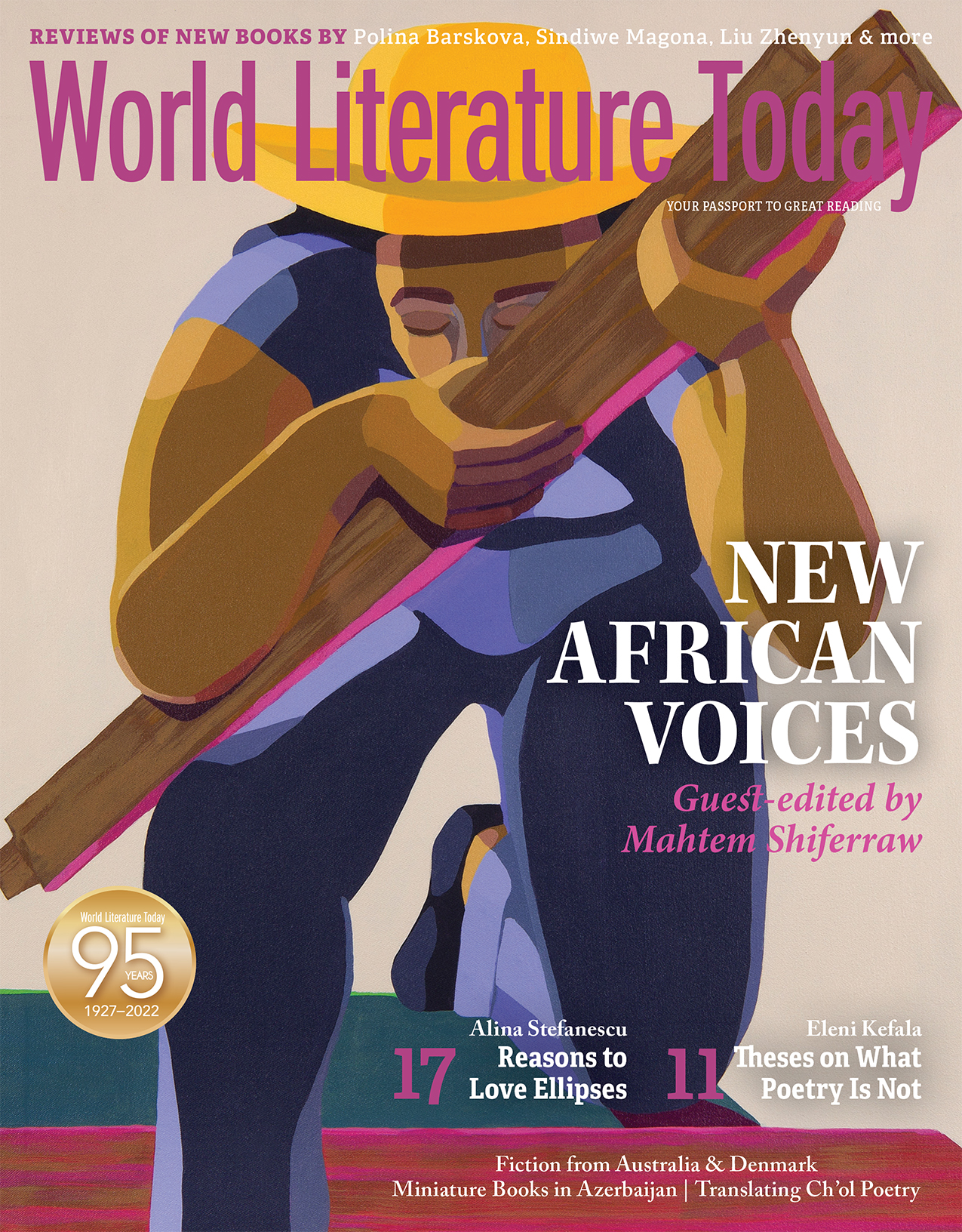Editor’s Note
I think there is something transformative about living through, liberating yourself and evolving past your brutish histories.
– Saba Sebhatu, “Final Landing”
 PRIOR TO GOING to press, as I was rereading the fifteen pieces that appear in this issue’s New African Voices cover feature, the phrase “liberation aesthetic” popped into my head. I can’t claim to have coined the term—critics have used it to describe the work of Angela Carter, Ngũgĩ wa Thiong’o, and Dudley Randall. That two of these writers—Ngũgĩ and Randall—represent multilingual crosscurrents of contemporary African and African American literature seems apropos: the writers gathered here by guest editor Mahtem Shiferraw bestride multiple geographies, cultures, and temporalities. And liberation is a leitmotif that threads its way through their work.
PRIOR TO GOING to press, as I was rereading the fifteen pieces that appear in this issue’s New African Voices cover feature, the phrase “liberation aesthetic” popped into my head. I can’t claim to have coined the term—critics have used it to describe the work of Angela Carter, Ngũgĩ wa Thiong’o, and Dudley Randall. That two of these writers—Ngũgĩ and Randall—represent multilingual crosscurrents of contemporary African and African American literature seems apropos: the writers gathered here by guest editor Mahtem Shiferraw bestride multiple geographies, cultures, and temporalities. And liberation is a leitmotif that threads its way through their work.
“Here we are,” Shiferraw asserts in her introduction, “all of us mapped like new constellations, a new cartography . . . a mapping that is equally vast, largely metaphoric, filled with new lights—new marvelings for us to consider, new wonders from the continent.” Such shifting cartographies manifest themselves in the very definition of home (“the strength of a home is in its porosity,” writes Ghanaian writer Henneh Kwaku), with such authors as Eritrean American writer Saba Sebhatu feeling at once “anchored down and unmoored by places.” Against the estrangements of diaspora, “Home was in the mind,” she writes. And the desire for freedom pervades Yalie Kamara’s poem “Freeborn,” a term that marks not only a state of emancipation but continued striving: “Freeborn: I give my mother this old language, watch her grip it between / arthritic fingers, watch her toss the fossilized noun-verb back.”
 The words voices and liberation also call to mind the work of PEN International, the writers’ group dedicated, since 1921, to promoting global freedom of thought and expression as well as—in one of its many areas of advocacy—defending imprisoned writers and public intellectuals from persecution. In her marvelous new book PEN Journeys: Memoir of Literature on the Line, Joanne Leedom-Ackerman highlights forty-four of the “journeys” she has made, since the 1980s, crisscrossing the globe as president of a PEN Center, chair of PEN International’s Writers in Prison Committee, and PEN International vice president. The role of PEN International in Africa occupies a prominent place in the book, and that work is urgent and ongoing: on December 28, 2021, writer Kakwenza Rukirabashaija was unlawfully detained by Ugandan security forces and reportedly subjected to torture. PEN America’s Freedom to Write Index for 2020 shone a spotlight on Egypt, Eritrea, and Algeria as having the most cases of detained writers in Africa. And at the centenary PEN Congress in September 2021, Kurdish novelist and human rights lawyer Burhan Sönmez was elected president of PEN International, drawing attention to the Turkish government’s long history of imprisoning writers, from Nâzım Hikmet to İlhan Sami Çomak.
The words voices and liberation also call to mind the work of PEN International, the writers’ group dedicated, since 1921, to promoting global freedom of thought and expression as well as—in one of its many areas of advocacy—defending imprisoned writers and public intellectuals from persecution. In her marvelous new book PEN Journeys: Memoir of Literature on the Line, Joanne Leedom-Ackerman highlights forty-four of the “journeys” she has made, since the 1980s, crisscrossing the globe as president of a PEN Center, chair of PEN International’s Writers in Prison Committee, and PEN International vice president. The role of PEN International in Africa occupies a prominent place in the book, and that work is urgent and ongoing: on December 28, 2021, writer Kakwenza Rukirabashaija was unlawfully detained by Ugandan security forces and reportedly subjected to torture. PEN America’s Freedom to Write Index for 2020 shone a spotlight on Egypt, Eritrea, and Algeria as having the most cases of detained writers in Africa. And at the centenary PEN Congress in September 2021, Kurdish novelist and human rights lawyer Burhan Sönmez was elected president of PEN International, drawing attention to the Turkish government’s long history of imprisoning writers, from Nâzım Hikmet to İlhan Sami Çomak.
Returning to the New African Voices focus of the current issue, explicit political statements are mostly absent, except in Egyptian writer Nour Kamel’s “Dreams of a Detainee,” which begins with a litany of thirty-four names, then ticks off a list of the state’s repressive machinations: “detained imprisoned fined disappeared tortured solitarily confined killed for the utterly mundane or the utterly righteous.” Against such draconian measures, the detainees’ dreams persist; in the end, Kamel champions those women “who dare believe and act as though they’re free.”
A liberation aesthetic? Not art for art’s sake, but art that prioritizes freedom of expression. These “new” African voices exemplify an age-old desire: to liberate the word.
Daniel Simon
